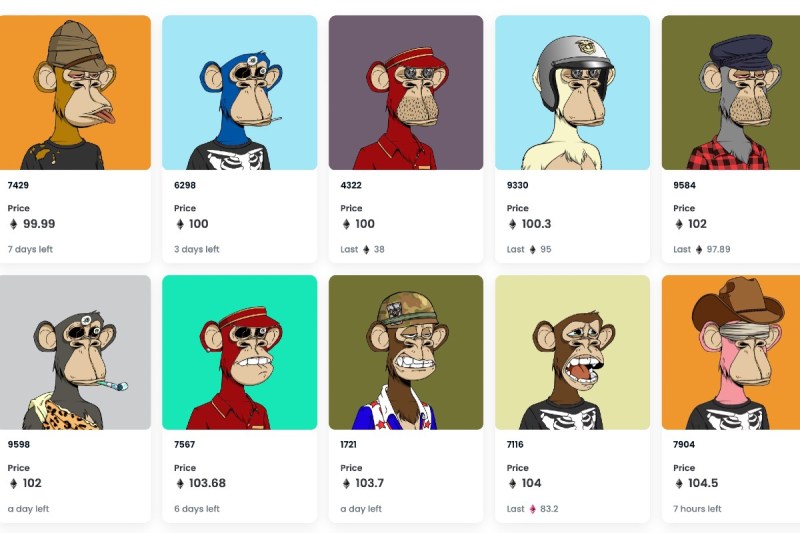There’s an ongoing dust-up between primates in the NFT world.
The fight pits Bored Ape Yacht Club against a defendant group that’s headlined by L.A.-based artist Ryder Ripps. A June 24 complaint filed in California federal court by Yuga Labs, maker of the ultra-popular BAYC tokens, claims that Ripps (along with help from Jeremy Cahen, founder of NFT marketplace Not Larva Labs and 10 additional defendants) is “trolling Yuga Labs and scamming consumers into purchasing RR/BAYC NFTs by misusing Yuga Labs’ trademarks.” The filing claims that Ripps “seeks to devalue the Bored Ape NFTs by flooding the NFT market with his own copycat NFT collection.” For Ripps, this is a personal, artistic, and educational mission.

In January, Ripps, who was born Jewish, began posting to his tens of thousands of social media followers about what he claimed to be connections between BAYC visuals and Nazi and white supremacist messaging. Ripps pointed out, for example, that the BAYC logo appears to be quite similar to the Nazi Totenkopf emblem. He then compiled his research at gordongoner.com — a site named after the pseudonym (and supposed anagram) of one of BAYC’s co-founders.
The question of whether Yuga Labs founders or BAYC were racist soon became a viral debate and a serious thorn in BAYC’s side. Yuga Labs denied, outright, any connections to the extremist imagery. Moreover, co-CEO Nicole Muniz told Input that very idea runs opposite to the sense of community that BAYC wants to foster. She characterizes Ripps’ barrage of BAYC-targeting tweets as very aggressive.
“It is deeply painful. It’s disturbing,” she said.
https://twitter.com/ryder_ripps/status/1546554110983344130
Then, this past May, Ripps exactly aped 550 Bored Ape avatars, first “by hand” and then for sale on NFT platforms.
“If you’ve been on 4chan, this is just classic trolling,” Ripps said to CoinDesk in May. “It’s surprising how far they took it.”
Yuga Labs didn’t see these actions as a joke, but instead, described Ripps as on a “campaign of harassment based on false accusations of racism.” In addition to using “the very same marks to promote their RR/BAYC NFT collection,” Yuga Labs points out that Ripps offered the allegedly infringing NFTs on “the same NFT marketplaces that Yuga Labs uses to sell its Bored Ape NFTs, such as OpenSea,” which amounts to “elementary level trademark infringement.”
While several of these marketplaces have removed the offending RR/BAYC NFTs, Bored Ape NFTs could probably use this news cycle to prop up what’s been a flagging fad. Despite a 22% jump in the club’s NFT-linked Ape Coin cryptocurrency at the end of June, the coin is back down to $4.56/coin, a precipitous drop from reaching almost $27 in April. Now it’s going to have a legal battle on its hands because Ripps is not backing down.
Faced with legal action, Ripps responded, “The lawsuit grossly mischaracterizes the RR/BAYC project – people who reserved RR/BAYC NFT understood that their NFT was being minted as a protest against and parody of BAYC.” Ripps cites a disclaimer that “they explicitly acknowledged” when purchasing RR/BAYC NFTs.
https://twitter.com/ryder_ripps/status/1541582862025052160
The artist argues that the RR/BAYC project “uses satire and appropriation to protest and educate people” about BAYC and NFTs. Ripps’ legal argument boils down to fair use, which “identifies certain types of uses — such as criticism, comment, news reporting, teaching, scholarship, and research” according to the U.S. Copyright office.
The outcome of this ongoing case will cast an enormous weight over the future fair use of NFTs and digital copyright.



